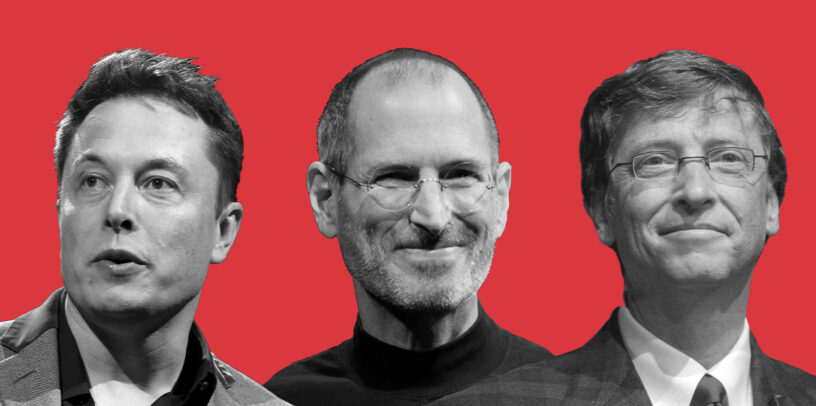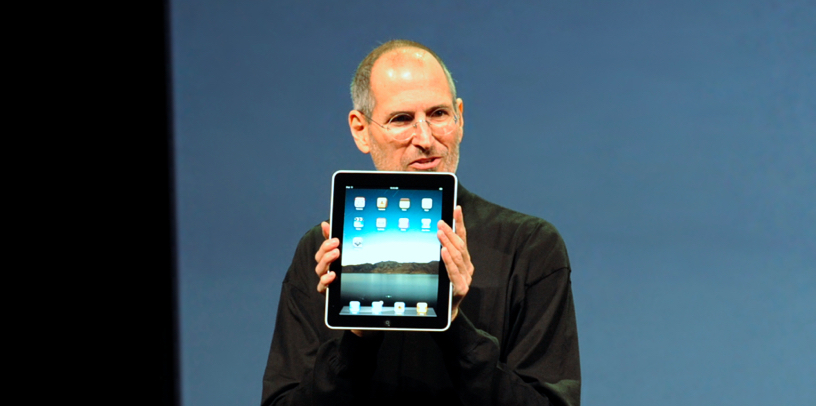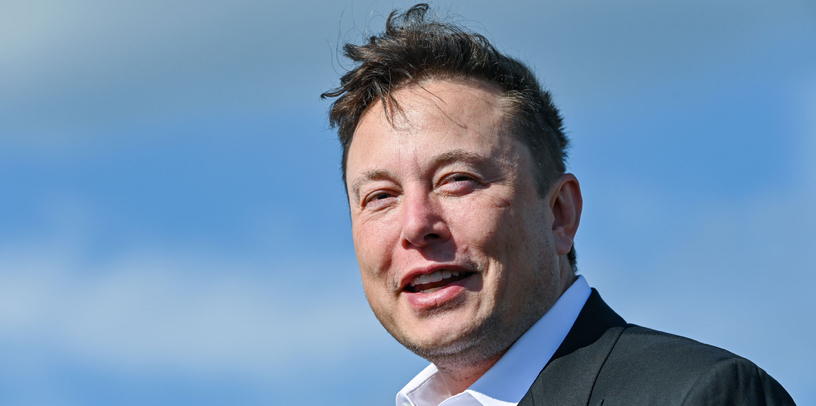
vasilis asvestas / Shutterstock | Matthew Yohe, CC BY-SA-3.0. Changes were made. | Paolo Bona / Shutterstock
The key difference between Musk, Gates and Jobs was yet to discussed in-depth, but this difference might be extremely valuable to many, perhaps to us all.

vasilis asvestas / Shutterstock | Matthew Yohe, CC BY-SA-3.0. Changes were made. | Paolo Bona / Shutterstock
It is said that your choices make you who you are. That is true in many ways. And hence, though Elon Musk, Steve Jobs, and Bill Gates share quite a few attributes, from toughness and persistence to some heavy-duty brain power, the key difference between them may be in the goals each chose for himself rather than the behavioral patterns they’ve demonstrated while striving to achieve those goals.
And perhaps even more important than the goals we choose for ourselves are the reasons that bring us to choose such goals. If we regard our goal as our destination, then the reasoning behind our goal may be regarded as our compass. A compass that is strongly related to our values, drives, and intentions.
By examining the goals that Musk, Jobs, and Gates chose for themselves and how those goals shifted throughout the years, we may gain a deeper view of the compasses that directed them. But a key question to ask is when they choose a goal? and which goal was it?

Starting with Bill Gates, it would be hard to claim that he did not start programming simply because he liked it. It is true that at some point Gates understood and to be precise – predicted – the potential of making computers more accessible so the masses could benefit from them. But for many years it seems that the key effort was to just capitalize on his high skills and vision. That is not to say that this was bad in any way or that there was not a huge contribution from this to us all. But it was what it was.

Steve Jobs’ goals also evolved quite organically—from doing the stuff that attracted him to developing them into exciting, elegant products. Steve presented IBM as bad and Apple as good, but the truth is probably closer to Apple’s slogan, “Think Different.” Both thought and operated differently. There was no good or bad, and a deep examination of IBM and Apple today will probably lead to no single conclusion of who the good guys and bad guys are, if any.

Finally, Elon Musk also demonstrated a natural evolution, starting with developing a computer game as a kid and moving towards Zip2 and PayPal. But Musk stopped as soon as he achieved fair success and recalculated his path based on a question many of us ask ourselves at some point: What does the world need?
It may seem like an obvious question, as every entrepreneur asks what does the world need? What will there be a demand for? What can become popular? What would people be willing to pay for?
But that is not what Musk asked. Musk asked, “What does the world really need, regardless of any person’s ability to capitalize on it, or how much he likes the idea or has a chance of succeeding with it?”
A similar thought was once spoken by a great American leader, John F. Kennedy: “Ask not what your country can do for you, but what you can do for your country.” Wouldn’t a greater, more global leader ask the same question as Kennedy, but without limiting its vision to any one specific country?
Nevertheless, such a question is not a question for the faint of heart and we all better think twice before confronting it. Because once we ask and as soon as we have our answer, we risk facing yet additional questions: “Why are we not doing it? And why are we doing what we are doing?” Honestly, it is fair to say that we might not like the answers that we have.
No matter how we choose to look at it, what Gates, Jobs, and Musk chose is nothing but impressive, especially since they all had fair goals. They put their blood and tears into computers, set aside basic physiological needs like sleep, and cast away the opportunities to diversify their lives.
But the truly interesting thing is that they all chose to devote their lives to computers and they all had a pivot point. All three eventually asked: what does the world need? Not to capitalize on the next best business opportunity, but to generate the highest most valuable, and positive impact for us all.
Jobs concluded that the medical and educational systems need to be revolutionized by technology. Gates and his wife Melinda decided that medicine, education, and resources need to be made accessible for all, no matter who we are or where we live. And Musk concluded that we better split the “eggs” on the human bucket we call Earth to support our long-term survival—and that to make sure we have time enough to get there, we better minimize global warming by electrifying global transportation while shifting to solar energy.
There are very few great people if any, who did not demonstrate such an impressive shift when coming of age. From John D. Rockefeller and Andrew Carnegie to Alfred Nobel, Warren Buffet, and Oprah Winfrey—all eventually became philanthropists or focused their efforts on the broad public good.
The difference is that most great people make such realizations when they come of age and only a select few do it sooner than later before the years pass by and before they get to the top of their game. Jobs pointed out that the next big revolutions should focus on medicine and education after reinventing 7 other industries and while being at the end of his life. Gates and Melinda established the “Bill and Melinda Gates Foundation” after Microsoft dominated the software industry for many years. Musk, however, realized this at a much earlier stage and before being at the top of his game.
Other people who choose Musk’s path at such an early age do exist but they are few. There are many examples, but Benjamin Franklin, Gandhi, Martin Luther King, Buddha, Jesus Christ, Mother Teresa, and Marva Collins, are some of the most well-known exemplars who chose the challenging path for the benefit of all before gaining unprecedented power.
This is not to say that one group is in any way better than the other, they are both as good as it gets. Both contribute to the overall good. The important thing that we may learn from examining such exemplars and their life stories has nothing to do with them and everything to do with us.
Perhaps there is no real need to make it big or accumulate a fortune before we ask ourselves what we want to do with our lives, but only one real thing that matters – the answer that we may find.
At this point, Time Economy is self-funded and we will highly appreciate any financial contributions you may choose to make.
You can make a contribution from as little as $1. Help us fulfill our vision and benefit the many.
Make a contributionTime-saving article
70+ yrs
Quantification:
Doing the right things for the right reasons can grant you with a compass for life, a mission, meaning, motivation, and aside from a chance to succeed, it can also make your life healthier, longer, and better. This article is all about the stuff that makes us strive for whatever it is that we are after – the thing that makes us who we are.
World Impact
All
Enter your email address. We will email instructions on how to reset your password.
Comments
Start a discussion, leave your comment below